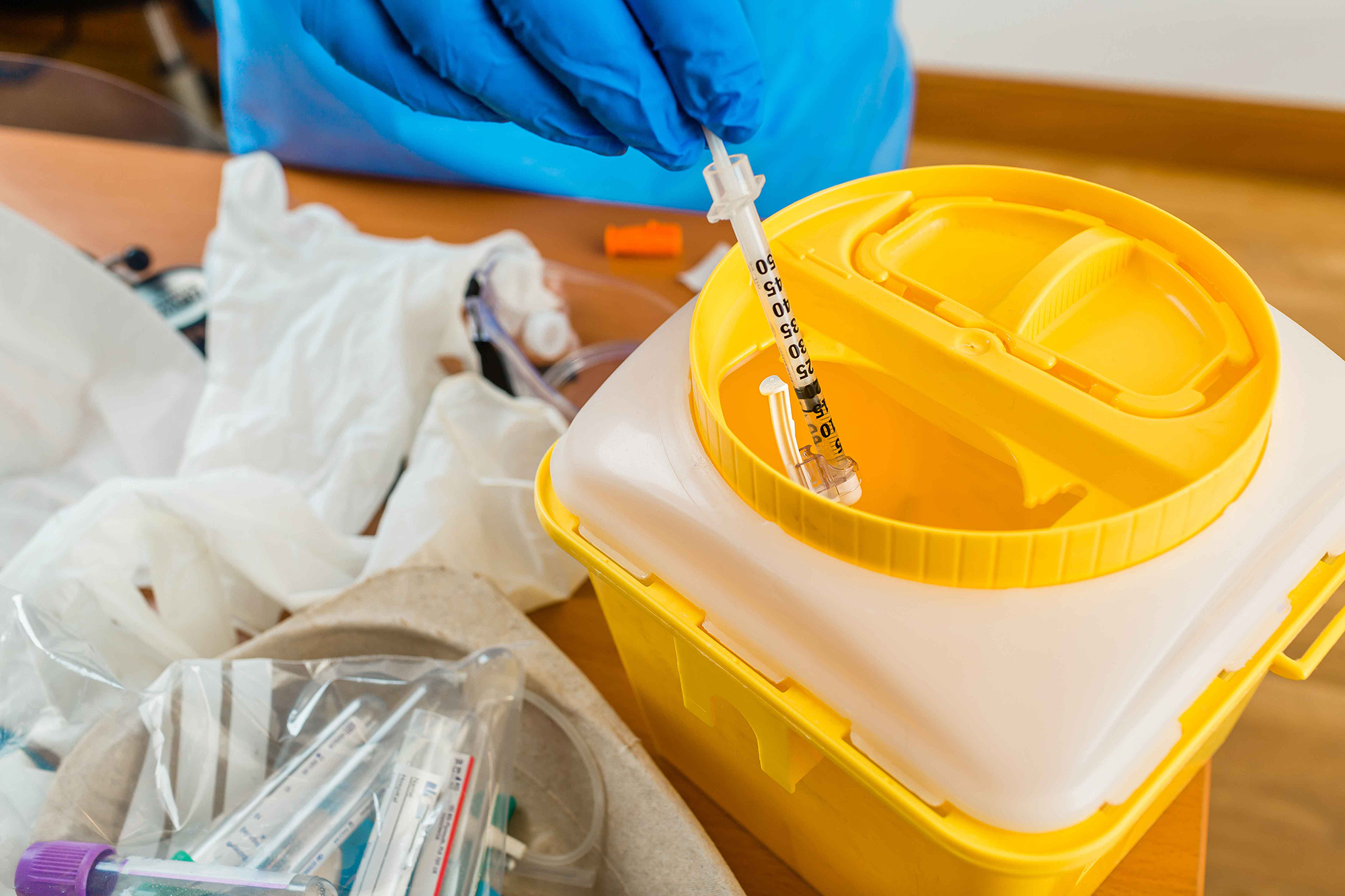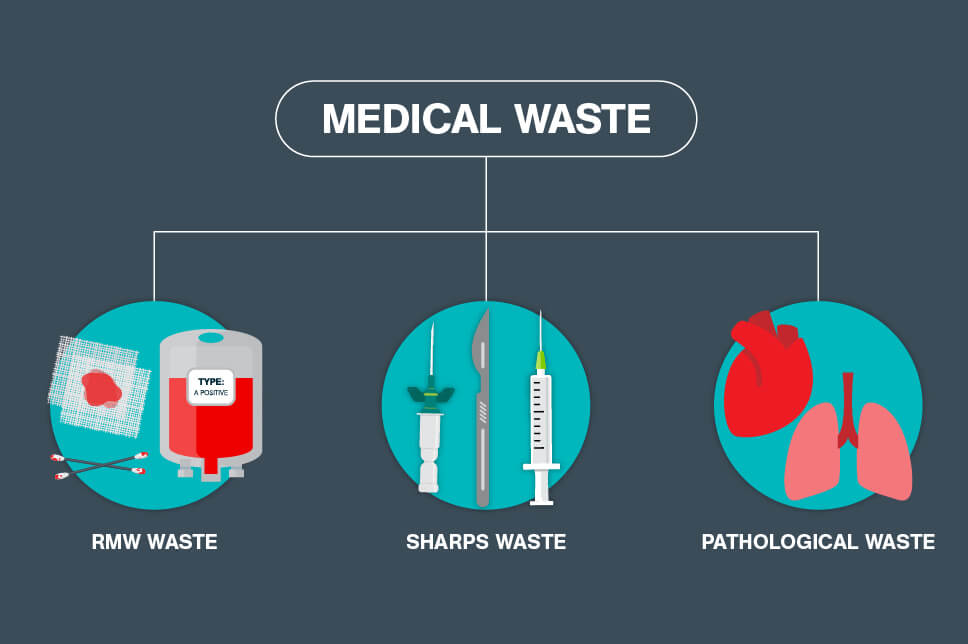Eco-Friendly Solutions for Medical Waste Removal: Prioritizing Safety and Conformity
Wiki Article
Making Sure Safe Handling and Disposal of Medical Waste
Making certain risk-free handling and disposal of medical waste is of extremely important value in healthcare setups. Incorrect management of medical waste can pose significant risks to the environment, public wellness, and health care employees. This requires adherence to stringent guidelines and procedures for its secure handling and disposal. In this introduction, we will certainly explore the value of proper clinical waste monitoring, the threats connected with incorrect handling and disposal, as well as the standards and techniques that can be applied to guarantee its safe disposal. Furthermore, we will go over the value of training and education for medical care experts in order to preserve a clean and secure healthcare setting. By complying with these techniques, we can successfully reduce the potential dangers connected with medical waste.Relevance of Correct Clinical Waste Monitoring
Proper medical waste monitoring is of utmost value in ensuring the safety and well-being of healthcare experts, people, and the basic public. Clinical waste refers to any type of waste created by healthcare centers during the diagnosis, treatment, or immunization of pets or human beings. This waste can present serious health and wellness threats otherwise managed and dealt with effectively.
One of the primary reasons proper medical waste monitoring is vital is to stop the spread of contagious illness. Medical waste, such as used needles, infected dressings, and organic products, can carry harmful pathogens. Otherwise handled and taken care of correctly, these pathogens can be transmitted to healthcare employees, people, waste trainers, and also the general public, leading to the potential episode of diseases.
Furthermore, proper clinical waste monitoring helps safeguard the atmosphere - medical waste removal. Clinical waste has hazardous materials, including chemicals, pharmaceuticals, and radioactive substances. When not managed appropriately, these substances can pollute dirt, water bodies, and the air, presenting a substantial threat to ecosystems and public health and wellness
Additionally, efficient medical waste monitoring guarantees conformity with worldwide standards and regional guidelines. Federal governments and governing bodies have actually developed protocols and standards to ensure the risk-free handling, storage, transport, and disposal of medical waste. Adhering to these guidelines is necessary to avoid lawful consequences and keep the reputation and reliability of health care centers.
Risks of Improper Handling and Disposal

Patients can additionally be revealed to these transmittable illness if medical waste is not appropriately taken care of. For instance, if contaminated needles or various other sharps are not taken care of in designated puncture-proof containers, they might unintentionally puncture people, leading to prospective infections. If clinical waste is not segregated correctly, there is a threat of cross-contamination between various types of waste, additional enhancing the possibilities of illness transmission.
Improper disposal of clinical waste can also have destructive impacts on the atmosphere and the basic public. If clinical waste is not treated and dealt with properly, it can pollute water resources, soil, and air, bring about the spread of pollutants and conditions. This can have lasting effects on environments and public wellness.
Guidelines for Safe Handling of Medical Waste
Implementing effective procedures for the safe handling of clinical waste is crucial in ensuring the protection of medical care specialists, individuals, and the general public. These guidelines are essential in minimizing the threats associated with the handling and disposal of medical waste, such as infections, injuries, and environmental contamination.Most importantly, medical care facilities need to develop an extensive waste management strategy that sticks to neighborhood, nationwide, and global policies. This strategy must consist of clear guidelines on waste partition, packaging, transportation, storage space, and labeling. It is essential to separate various kinds of waste, such as sharps, contagious products, drugs, and non-hazardous waste, to stop cross-contamination and advertise secure disposal.
In addition, medical care personnel need to get thorough training on appropriate waste handling techniques. They should be informed on the prospective threats of clinical waste, the ideal use personal protective devices (PPE), and the correct treatments for managing, carrying, and dealing with various kinds of waste.
In addition, medical care centers ought to regularly keep an eye on and investigate their waste administration techniques to make sure conformity with guidelines. This consists of performing regular examinations, reviewing waste handling procedures, and supplying responses and training to team member.
Efficient Approaches for Garbage Disposal
To make certain the safe handling and disposal of medical waste, it is vital to employ efficient techniques for garbage disposal. Clinical waste can present significant threats to public health and the environment if not handled and dealt with appropriately. Medical care facilities and waste management organizations have to apply proper methods to mitigate these dangers.It involves dividing various kinds of medical waste based on their attributes. Healthcare centers should give clear guidelines and training to staff participants on exactly how to set apart waste appropriately.

Furthermore, health care facilities ought to collaborate with accredited waste management companies to make certain appropriate disposal of medical waste. These business have the competence and equipment needed to securely handle and dispose of medical waste in compliance with policies and best practices.
Training and Education And Learning for Health Care Professionals
Healthcare professionals play a crucial role in guaranteeing the safe handling and disposal of clinical waste via thorough training and education. It is essential for health care providers to have a deep understanding of the possible risks related to medical waste and the correct protocols for its administration. By receiving appropriate training, medical care specialists can decrease the possible transmission of transmittable conditions, avoid ecological contamination, and shield both themselves and the general public.
Moreover, training programs should highlight using individual safety equipment (PPE) and proper hand health practices when handling medical waste. medical waste removal. Healthcare professionals must recognize how to correctly use and dispose of PPE to shield themselves from potential exposure to hazardous products. They need to also be educated on the value of normal handwashing and the proper use hand sanitizers to lessen the spread of transmittable illness
Continuing education and routine updates on clinical waste management methods are critical for health care professionals. As standards and regulations evolve, it is necessary to maintain doctor notified concerning any kind of modifications in protocols and best techniques. This will certainly make certain that they remain up-to-date and maintain a high criterion of security in dealing with and disposing of clinical waste.
Final Thought
To conclude, appropriate handling and disposal of medical waste is crucial to make certain the security of medical care experts, patients, and the setting. Disregarding to adhere to regulations and guidelines can result in various dangers and risks. Executing reliable methods for garbage disposal and offering ideal training and education for medical care specialists are link crucial in maintaining a secure healthcare atmosphere. By sticking to these practices, we can reduce the possible risks related to medical waste.Medical waste refers to any kind of waste created by healthcare centers during the medical diagnosis, treatment, or booster shot of human beings or animals. If medical waste is not set apart appropriately, there is a threat of cross-contamination in between different kinds of waste, more raising the opportunities of disease transmission.
It is important to divide various kinds of waste, such as sharps, infectious products, drugs, and non-hazardous waste, to prevent cross-contamination and advertise risk-free disposal. WasteX Medical Waste Disposal.
To ensure the safe handling and disposal of medical waste, it is necessary to employ reliable techniques for waste disposal. Furthermore, medical care facilities ought to develop a normal waste collection and transportation routine to protect against waste accumulation and minimize the danger of crashes or contamination.
Report this wiki page